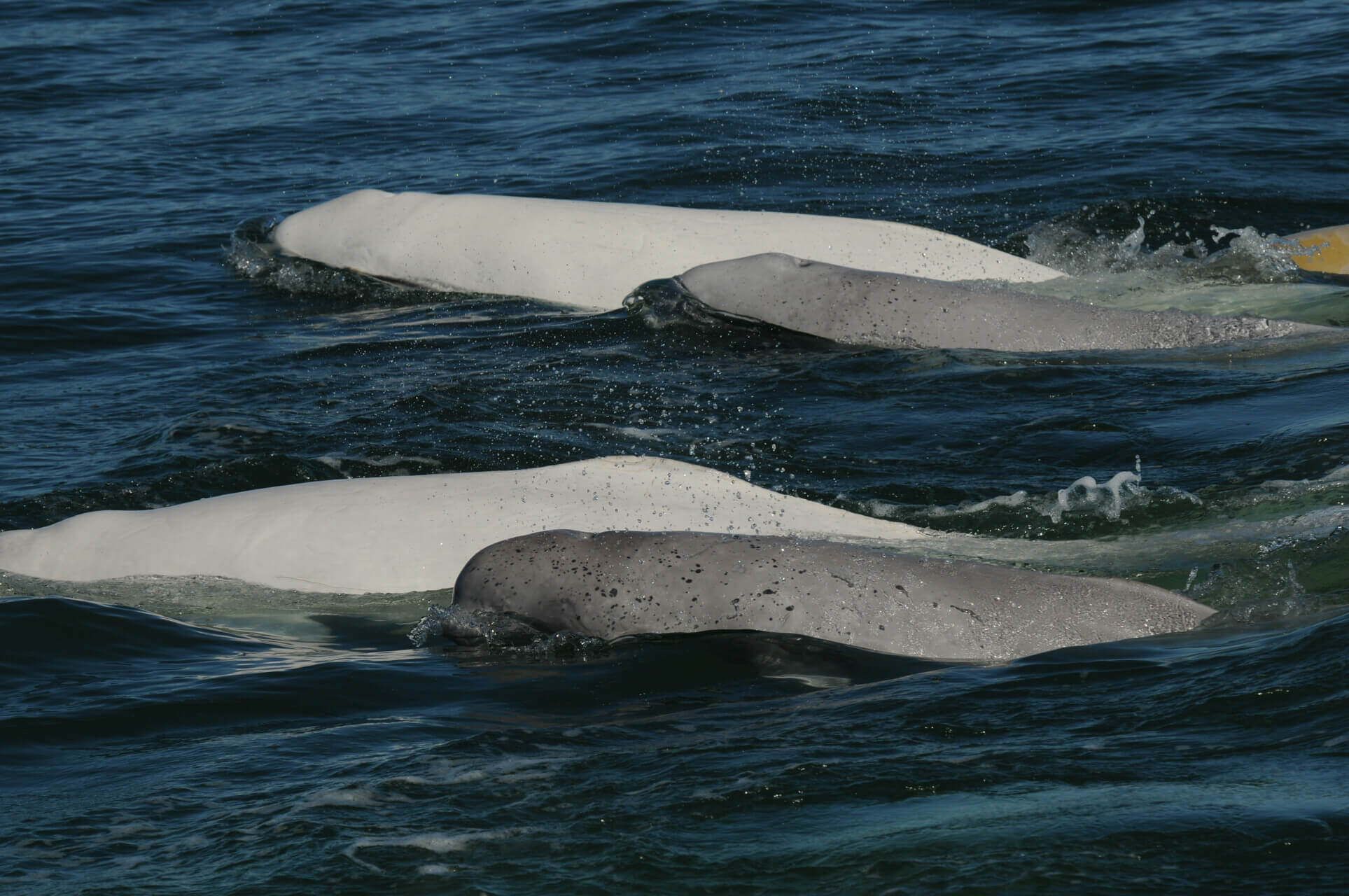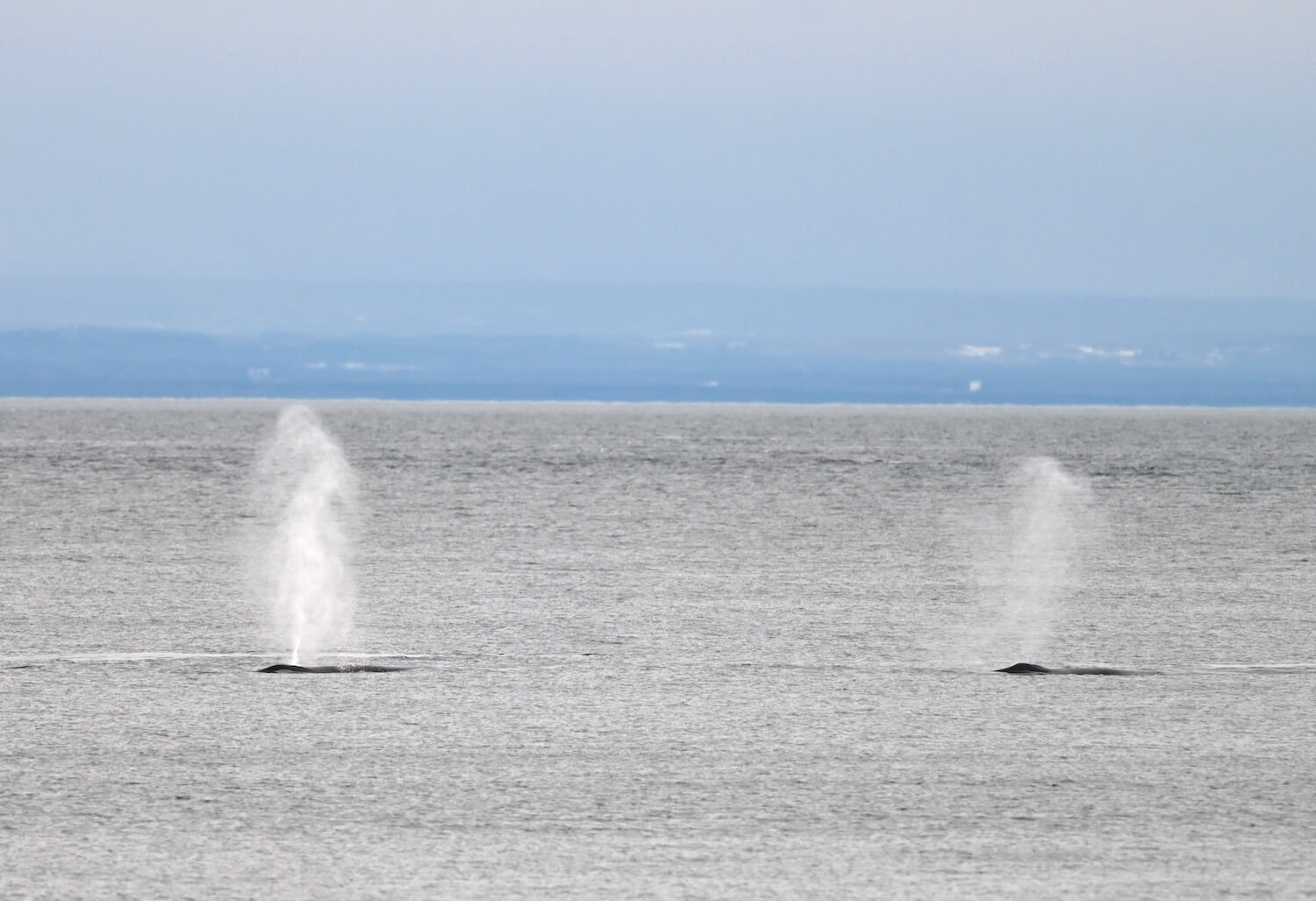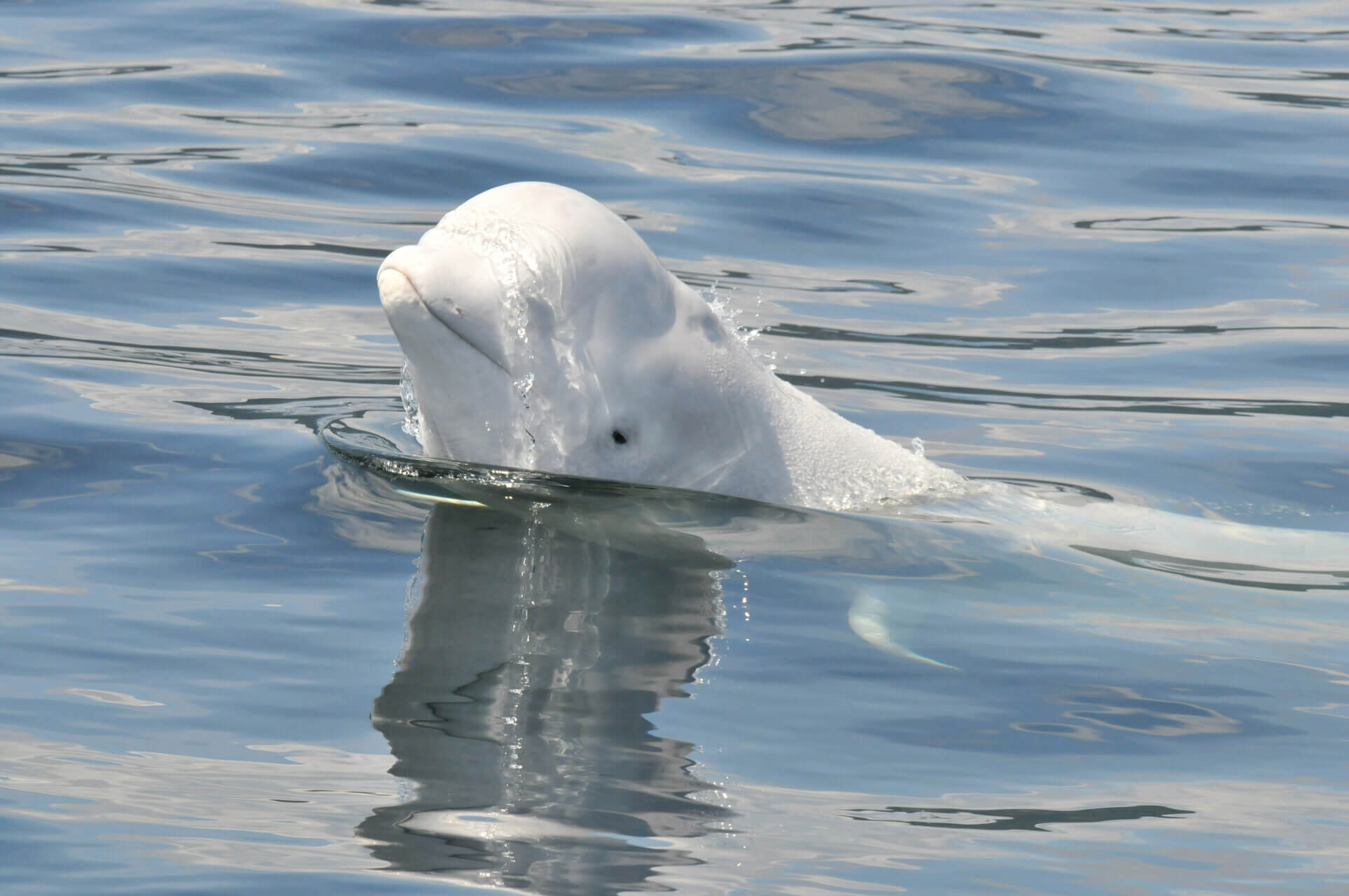By Olivia Capeillere
Several studies support the hypothesis that climate change will have negative impacts on whales. Three main impacts emerge from these publications.
Climate change is causing a shift in the temperature and salinity of the water, which can have direct physiological effects. For example, this can lead to thermoregulatory problems in species that are more geographically restricted, mainly tooth whales. Modifications in water temperature can also affect the growth and survival of fish, and thus the availability of food for whales. Changes in salinity can alter the distribution of prey, and in turn the competition between species. Changes in temperature can also alter the distribution and abundance of pathogens and predators.
Near the poles, ice cover is both a “pantry” and a haven for whales. Algal blooms under the ice attract zooplankton, which in turn attract fish. Marine mammals may feed and take shelter under the ice, which protects them from the wind and harsh weather. Diminishing ice cover is dramatic for species such as belugas and narwhals, which make use of these “refuges”. The opening up of the poles is leading to increased maritime traffic and thus noise pollution and the risk of collisions with cetaceans.
Lastly, rising sea levels can disrupt the habitats of several toothed whales as well as baleen whales, which require shallow marine areas for calving and care of their young.
Some whales could benefit…
Bowhead whales in the Arctic are witnessing changes to their habitat. Shrinking ice cover allows the sun to reach more nutrients in these cold waters to create, through photosynthesis, microscopic algae called phytoplankton. These are eaten by zooplankton such as copepods, a favourite food of bowheads. The less ice there is, the more sunlight penetrates the ocean, and the more food there is for bowhead whales.
And this is not the only whale that “benefits” from reduced ice cover. According to acoustic studies conducted in Antarctica, it was discovered that part of the humpback whale population remained to feed in the cold Antarctic waters in winter, farther south than normal. The same phenomenon is being observed in the North Pacific humpback whale population.
These most recent studies mention that the positive effects are probably only short-term. Although some whale species manage to adapt to climate change, or even temporarily benefit from it, in the long term it is the entire marine ecosystem that will suffer from global warming.
To learn more:
How climate changes affect bowhead whales





